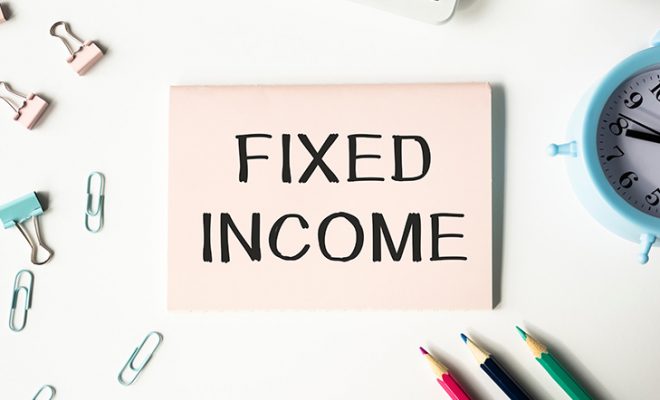Middle-age Investments You Should Be Making for a Secure Retirement

It can be safely stated that one of the biggest reasons people invest is to save money to fund their retirement. The key to a successful retirement savings strategy is to make the right investment choices throughout your life, starting with your first paycheck, right up till your last one.
Investing during any stage of your life ultimately boils down to making good asset allocation choices. Different asset classes have a different level of risk and reward. Therefore, you should think carefully before making a purchase. While the economy, prevailing market conditions, and overall potential for risk are just some of the factors you need to consider, your age should also dictate how you invest your money.
Here’s a closer look at the investments you should be making in your middle-age
- Mutual funds
- Mutual funds are extremely simple. You do not need a high financial acumen to purchase mutual funds or understand how they work. Moreover, with mutual funds available for as low as $100, you do not need a broker to help you invest in them. Mid-life is a time when you are too busy managing your responsibilities and building your nest-egg. You do not really have the time to learn about complex investment choices. Hence, mutual funds are great for middle-aged investors.
- You can build a brilliantly diversified portfolio easily with just a few mutual funds. Since they hold numerous securities, such as bonds and stocks, to name a few, mutual funds can offer a relatively safe way for middle-aged individuals to diversify and grow their portfolio.
- There are a wide variety of options available to you when investing in mutual funds. You can choose to purchase target date funds, balanced funds, sector funds and index funds, amongst many others. Index funds can especially be a very cost-effective option for people in their 30s and 40s.
- Roth IRAs
- One of the biggest advantages of a Roth IRA is that it provides you with the advantage of making tax-free withdrawals once you have met its simple conditions. This can really help with your tax savings and diversification efforts.
- You get more time and scope for investment growth as a Roth IRA does not require you to start receiving distributions till the age of 70.5 years.
- A Roth IRA provides you with the ability to continue making contributions when you have passed 70.5 years of age, as long as you are still earning.
- Real estate
- Historically, REITs have been known to provide investors with a solid, dividend-based income, liquidity, protection from inflation, and great portfolio diversification opportunities. Income-producing real estate can provide long-term returns and make for a great investment tool for effective retirement planning.
- REITs are especially popular with people in their 30s and 40s owing to their high cash distributions as compared to other corporate dividends. By law, REITs are required to distribute almost 90% of their annual taxable income to its investors. So, your returns are relatively safe and guaranteed.
- In uncertain times, when investments hang in a delicate balance due to inflation, market swings and other such challenges, a professionally-managed and publicly-traded REIT can provide some much-needed stability to the investment portfolios of middle-aged investors.
By the time you hit middle-age, the chances are that you have already started investing for retirement, or are thinking about it. Though there are not many investment options that guarantee a secure and comfortable retirement, mutual funds are definitely one of the best investments for middle-aged individuals. Amongst the many advantages that they offer, the most important ones are as mentioned below:
The fact that mutual funds are used and suggested by financial advisors and money managers all around the world serves as further testimony to them being a good investment option for young, middle-aged, and older investors alike.
While most investors suggest investing in a Roth individual retirement account (IRA) when you are in your 20s, the truth is that it is a great retirement savings tool at just about any age.
If you are in your 30s and 40s, a Roth IRA can be a great investment option for you, especially if you think that your taxes will be higher in retirement than they are at present.
You do need to give up on the upfront tax savings that otherwise accompany a traditional IRA or 401(k) plan. However, a Roth IRA can benefit you in many other ways, such as:
A Roth 401(k) plan, which is the employer-sponsored peer of a Roth IRA, is also worth considering since many workplaces offer it to employees nowadays. If you are presented with that option, you can contribute to your regular 401(k) as well as the Roth 401(k) plan instated by your employer. However, do remember that your combined contributions cannot exceed $19,500 in case you are under the age of 50 years.
While investing in your own home can be a good option for middle-age individuals who can afford it, others can consider investing in a real estate investment trust (REIT) fund. REITs offer investors the combined benefits of real estate investment, along with all the advantages of investing in publicly-traded stocks. Some of the main features that make REITs a great option for middle-aged people are:
Since REITs can offer a reliable source of retirement income to you in the future, it would make sense to invest in a REIT in your prime earning years.
To sum it up
In the end, one of the most useful pieces of advice you can receive towards successful retirement planning is that your investment approach should age and evolve as you do. When you are younger, you have greater potential for market risk and can focus on aggressive investment options without worrying too much about the possible downsides.
However, once you hit middle-age, it is time to buckle down and start getting serious. In your 30s and 40s you have probably reached, or are approaching your prime earning years, so you need to start building your portfolio. At the same time, a secure retirement should be at the forefront of every investment decision that you make.
If you are unsure about which funds to invest in, you can meet a qualified financial advisor
to get more clarity.










